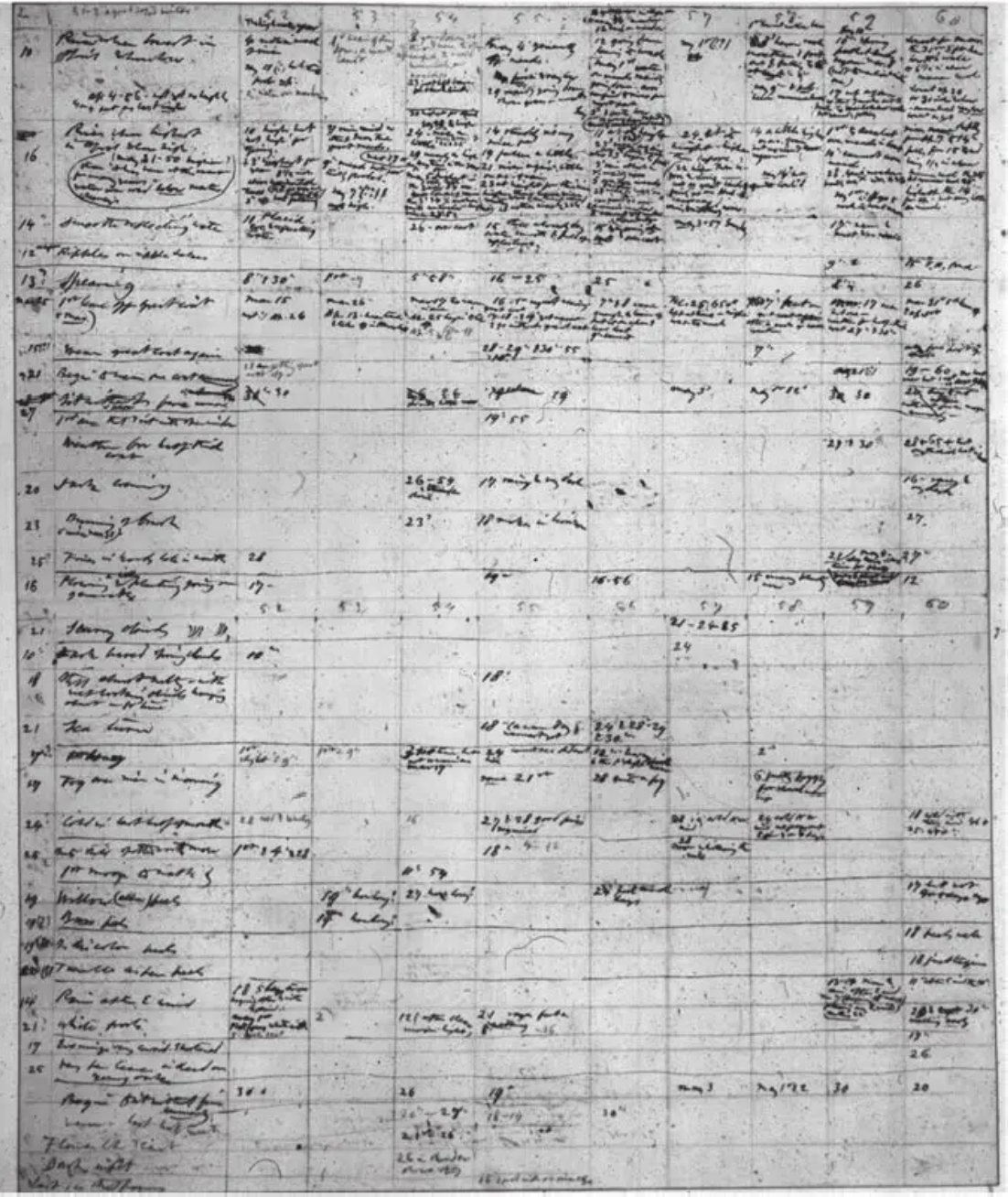
FARMINGTON – University of Maine at Farmington professor Kristen Case will be publishing a book on Henry David Thoreau’s Kalendar project. This will be the first time these manuscripts will be transcribed or made public in any way.
Thoreau, a famous transcendentalist, lived in Concord, Massachusetts during the early 19th century. He is the author of several books and essays, including Walden and Civil Disobedience.
Kalender is spelled this way to follow a gardening almanac tradition that goes back centuries, traced back as far as Ancient Rome. Thoreau was specifically referencing a book titled Kalendarium Hortense by John Evelyn.
Case’s book will examine and interpret Thoreau’s Kaldenar, his own almanac of monthly charts that kept track of everything, from 1850 to 1862. He would track the height of the river, the first day he opened his window in the spring, the first night without a fire, rainfall, and other weather related phenomena.
These spreadsheets served as a massive index to his journal project. Thoreau wrote in his journal religiously during the last decade of his life. Every day he would take a four hour walk and write extensively about what he observed. The Kalendar is a more organized and scientific way that he kept track of all that he found.
According to Case, the existence of the Kalendar clues us into Thoreau’s thinking about the relationship between humans and nature. Even in 1861, when Thoreau was bedridden and dying, there was still data on the height of the river. He must have gotten his friends to measure it for him. This shows how dedicated Thoreau was to this project, how badly he wanted to keep going.
This book will be a culmination of Case’s work in the Thoreau field over the past fifteen years. In graduate school she took a class on 20th century poetics where she had the chance to reread Walden. At the time, she was living in a little cabin in upstate New York, surrounded by lots of land where she would take long walks and observe nature. These experiences made her connect with Thoreau’s work in a new way.
Pursuing her newfound interest, Case read a book about Thoreau’s life and work written by H. Daniel Peck. There was a chapter specifically about Thoreau’s Kalendar manuscripts that piqued Case’s interest. Wanting to know more, she reached out to the author to find out who was working on these manuscripts. Peck answered, saying that no one was working on them and he had been waiting for twenty years for someone to start.
The book will have large images of the manuscripts on one side and Case’s interpretation on the opposite page. Case has chosen to work with Milkweed Editions, a publisher headquartered in Minnesota, for this project because of the quality of their images. She wants her readers to experience the actual manuscripts for themselves, as well as receive her interpretation. The book will hopefully be published in 2024, although the date is still unsure. Case wants to circulate the book to other Thoreau scholars before it is published. Apparently, Thoreau had truly terrible handwriting that can be easy to misread.
Case has been working on the book on the side for years, but next year she will take a sabbatical to make it her main focus. Over the summers, Case has enlisted the help of UMF students to assist her with transcribing the manuscripts and coding them so that they can be a searchable database.
“I feel super grateful to UMF and UMF students to be able to work on this project,” Case said.
More information about the Kalendar project and the book can be found at thoreauskalendar.org.




